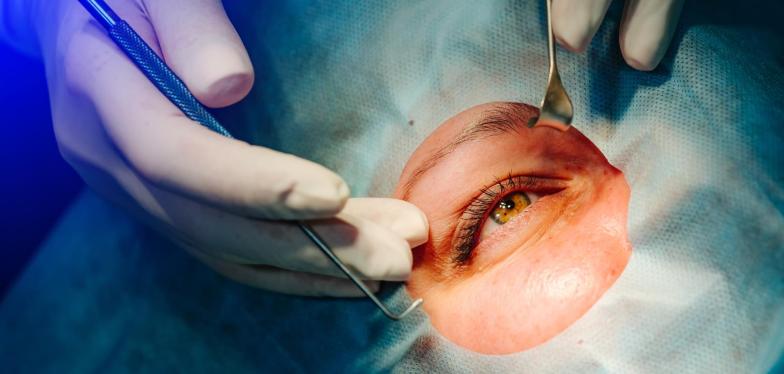UZ Brussels implants first telescopic lens in AMD patient
First Belgian patient with age-related macular degeneration (AMD) gets telescopic lens implanted at UZ Brussels University Hospital.

The macula or yellow spot is an area a few millimetres in diameter in the centre of the retina, at the back of the eye. Light-sensitive cells in the retina convert light into electrical signals that are sent to the brain. On the one hand, these are the rods which perceive light and dark, allowing us to see even in low light; on the other, the cones, which see colours and contrast, allowing us to distinguish details well. There are many cones together in the yellow spot, so we see best with this part of the retina.
But ageing is simply accompanied by a decline in vision. The leading cause of deteriorating vision in people aged 65 and older is age-related macular degeneration (AMD), a condition relating to that yellow spot in the centre of the eye. Almost 20% of those over the age of 75 are affected. Needless to say, this disease severely affects quality of life.
Recently, however, UZ Brussels implanted a telescopic lens in the eye of an AMD patient for the first time. This entails high-resolution images being projected onto healthy photo receptors around the yellow spot, restoring central vision. After surgery, the patient still has to undergo a series of rehabilitation sessions to learn to use the lens and to exercise their eyes.
So there is clearly light on the horizon.